
 Flash News
Flash News
Veliaj's appeal to be heard today in the High Court
Today's hearing at the Fier Court, Salianji requests conditional release
Taxi collides with truck on Lezhë-Shkodër axis, driver taken to Trauma in serious condition
At least 91 dead in Texas floods
A decomposed body is found in Kolonjë, initial suspicions

Alfred Lela
For years, television debates have become iconoclasts of the concept of the media as a means for the public to understand events and protect themselves from abuses of power. Moderators cannot be blamed for this, at least not entirely, because they are prey to the zeitgeist for sensationalism, click bites, large audiences, and the ad money that comes with that.
This must be said, especially with an increasingly vulgar, unread, disinterested public searching for entertainment, not knowledge. It has always been this way; in fact, what has changed is the proliferation of communication platforms and technology, which have enabled everyone to take a place in the arena of public participation.
Having said this, both Blendi Fevziu and his colleagues and panelists such as Baton Haxhiu and his colleagues must be understood. Last night, when the suspicion of participation in drug trafficking Olsi Rama was being discussed, which rightfully turned into an agenda setter, almost in all TV debates, the attempt to undo the agenda that the news had set, but also the news itself, was not avoided.
The best way to do this is to dramatize the debate, so to talk about the issue from its margins, making the most trivial things central. Yesterday's panel, put in front of the chairman of the parliamentary group of the Democratic Party, was, I can't say, by chance or selection, to undo the essence and shift the agenda. Baton Haxhiu and Iris Luarasi put themselves at the head of this effort.
As far as I know, the media and the debate lost the battle with Bardhi, but it doesn't matter who won or lost. What matters in this case is why the debate is trivialized. The more banal the minds are, and they mostly are, the more they will deal with the trivial, with the side, with the frivolous instead of the serious, with trifles instead of substance.
An episode of this effort belongs to Baton Haxhi, an indeed wise man, with the trick that I have my intelligence for myself but also to throw it to those less intelligent than me. For Baton, Olsi Rama is a hedonist, i.e., someone who indulges in the pleasures of life. According to Batoni, Olsi likes two things in life: football and the other things we all want. In an environment of men with masculine connotations, i.e., p…. (however, even here, we don't have to be confident because more and more p...is being disqualified as the main totem).
Fevziu, an Albanian man and the moderator of the show, asked for one more drool from his audience on the imaginary steps of the arena and asked him what men enjoy.
Baton's finding to turn off the light of the essence of the debate was promising, but the effects were short-lived. Even the most vulgar minds knew that last night the debate should be “Is the brother of the most powerful man in the country responsible; is he part of the drug trade? The accusation was based on reasonable suspicion, on logically connected points, with files procured by the state and came from a high exponent of the largest opposition party.
So the debate was: Is Olsi involved, not as the citizen Rama but as the prime minister's brother? Were the documents sewn up so that he escaped responsibility? Did prosecutors cover up his involvement? Have they been promoted to high positions for this 'service' to the prime minister?
Covering these questions with the character's hedonism, his desires for football and p…. are banalities, for the very simple fact that almost all men, here or in other countries, do this: They watch a lot of football and are sad why they have so little p...
However, this attempt to portray Olsi as a hedonist, i.e., an old town jolly, is a used scenario that Baton's predecessors in creating the myth of Edi Rama have put into circulation since the early 90s. This myth also saved Rama from the trap of nude photos on the beaches of France, which were published to harm him and, in the end, helped him to be re-elected as the head of the municipality.
Batoni and others, let them try to raise a similar myth about Olsi, but this does not avoid the question: do you have any statesmen to offer or only p... men?
* iconoclasts - people who try to undo or attack established and popular beliefs or concepts.
Latest news


"Bad sign for democracy"/ Parliament neglects reporting by institutions
2025-07-08 09:04:56
Today's hearing at the Fier Court, Salianji requests conditional release
2025-07-08 08:56:39

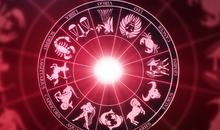
Horoscope, what do the stars have in store for you today?
2025-07-08 08:16:19
Weather forecast/ How temperatures will vary throughout the day
2025-07-08 08:02:37
Morning Post/ In 2 lines: What mattered yesterday in Albania
2025-07-08 07:48:30

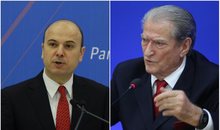
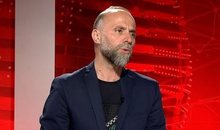


Marrëdhënia që s’është romancë, por s’është as thjesht kolegiale
2025-07-07 21:39:13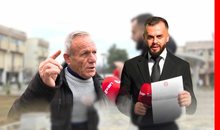
Citizen is asked to pay 2.5 million for a non-existent meter
2025-07-07 21:28:03

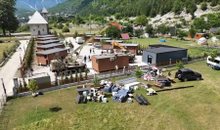


What is the ideal air conditioner temperature in summer?
2025-07-07 20:53:46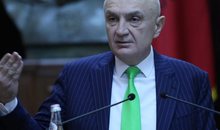
GJKKO left him in prison, Meta appeals the decision
2025-07-07 20:38:05
Where is Ronaldo after missing Diogo Jota's funeral?
2025-07-07 20:38:04

Messages from the author who killed Ilaria Sulla in Rome are revealed
2025-07-07 20:20:12
At least 91 dead in Texas floods
2025-07-07 20:12:02
Elbasan, choked by smoke, scorched by conscience
2025-07-07 19:48:16

Swarm of bees attacks citizens in France, 24 people end up in hospital
2025-07-07 19:32:03
Dementia/Hearing loss may be a warning sign
2025-07-07 19:13:06
The decision for Malltez, Gjokutaj: Boomerang for SPAK and the Court
2025-07-07 19:01:08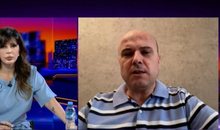
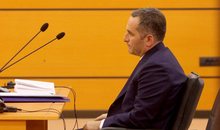
Former Supreme Court member acquitted of asset concealment
2025-07-07 18:36:40

WIIW expert in Politiko: Brain drain is steadily weakening the Albanian economy
2025-07-07 18:11:41
Heart health is at risk from extreme heat, here's what you should be careful of
2025-07-07 18:10:18
Today Gert Bogdani would celebrate, Edlira Çepani's touching dedication
2025-07-07 17:40:45



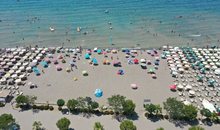


The striker severely accuses the Fenerbahce club: They tried to drug me
2025-07-07 16:21:03
A decomposed body is found in Kolonjë, initial suspicions
2025-07-07 16:03:31
Accident in Saranda, car hits motorcycle, one injured
2025-07-07 15:58:56

The most fertile age for men and women
2025-07-07 15:40:52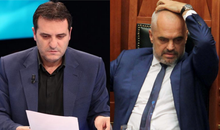
Locals, Rama candidate in 5 municipalities
2025-07-07 15:32:22
Blushi: Meta's criminal kidnapping, incomparable even to Navalny's in Russia
2025-07-07 15:20:34
Meet the iPhone 17 Pro, the main innovations in design and technology
2025-07-07 15:09:09
Why the release of Abi Malltez does not free him; much less Albania
2025-07-07 15:00:12
‘Lidhjet klienteliste’ të mjekëve mbushin recetat e pacientëve
2025-07-07 14:57:33
Poland imposes border controls with Germany and Lithuania
2025-07-07 14:48:15

Caught transporting firearms from Kosovo to Albania, young man arrested (NAME)
2025-07-07 14:37:47
Theo Hernandez flies to Saudi Arabia for medical check-ups
2025-07-07 14:26:47


Scorching heat, Greece orders mandatory work holidays
2025-07-07 13:54:25
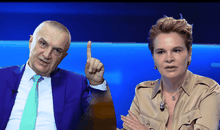

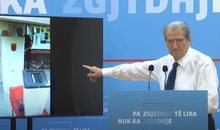

Trump expects Netanyahu to discuss Gaza ceasefire
2025-07-07 12:54:27
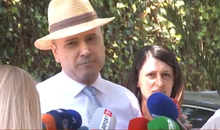
GJKKO releases Jamarbër Malltezi from house arrest
2025-07-07 12:35:02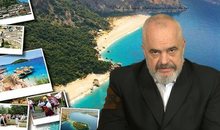
Tourism among contrasts
2025-07-07 12:31:01
IKMT action in Theth, starts demolition of unauthorized constructions
2025-07-07 12:24:18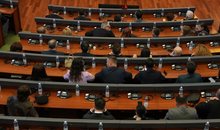

The Tirana-Kamëz line is destroyed by urban fire
2025-07-07 12:00:24


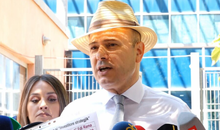

Poor direction!
2025-07-07 11:16:01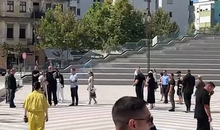


Rama to gather the country's mayors on July 9
2025-07-07 10:43:31
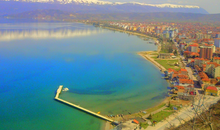
Ohrid Natural Park on the way to UNESCO's "black list"
2025-07-07 10:25:58

Registrations for the new school year begin in e-Albania
2025-07-07 09:59:09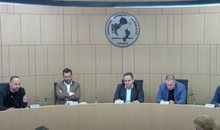
KAS decides the "fate" of the elections in four districts of the country today
2025-07-07 09:50:51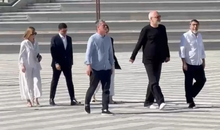
Rama does not give up on Vlora, visits the municipality again
2025-07-07 09:39:11
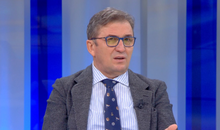
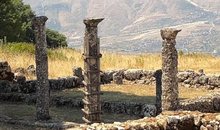
Fires in Gjirokastra, flames very close to cultural monuments
2025-07-07 09:12:49

Foreign exchange, the rate at which foreign currencies are sold and bought
2025-07-07 08:39:57
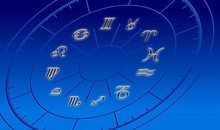
Horoscope, what do the stars have in store for you today?
2025-07-07 08:14:17
The week starts with scorching temperatures, the thermometer reaches 37°C
2025-07-07 07:58:36
Morning Post/ In 2 lines: What mattered yesterday in Albania
2025-07-07 07:45:15



Theologian: Behind Rama's idea for a Bektashi state in Albania, Israel is hiding
2025-07-06 20:57:48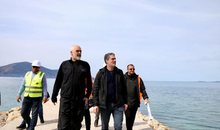
Rama's rhetoric without standards, comparing Paris, London, New York with Vlora
2025-07-06 20:35:52
Vehicle goes off the road, driver dies in Kukës
2025-07-06 20:07:47
